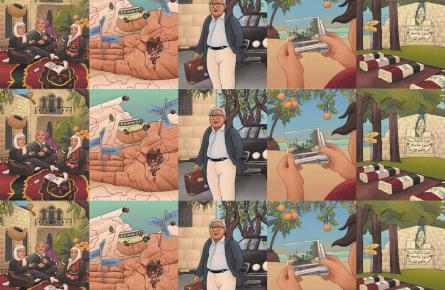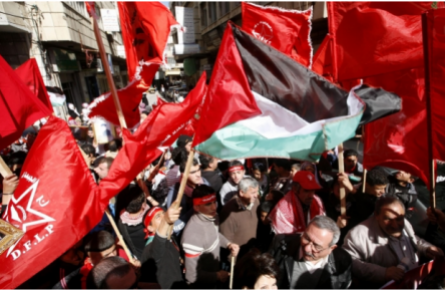The International Criminal Court’s chief prosecutor, Fatou Bensouda, announced the conclusion of the preliminary examination of the situation in Palestine on December 20, 2019. In a statement published to the website of the ICC, she asserted that there existed a reasonable basis on which to proceed with an investigation given that “all the statutory criteria under the Rome Statute have been met.”
Dozens of international news outlets have reported that the ICC will be investigating war crimes allegedly committed in the Gaza Strip and the West Bank, including East Jerusalem, since 2014. The probe is expected to cover actions by both the Israeli army and Palestinian armed groups like Hamas. While this is an important step towards bringing about justice in Palestine, the conclusions of media reports are inaccurate as insofar as the ICC cannot yet open an investigation. To do so, the Prosecutor must first obtain confirmation from the court’s judges regarding ICC territorial jurisdiction in the occupied Palestinian territories.
So, What is a Preliminary Examination?
A preliminary examination determines whether or not an investigation can be launched on the basis of three statutory criteria. First, the court’s jurisdiction, wherein only crimes committed in a State or by a national of a State party to the Rome Statute can be considered. Such jurisdiction applies after the relevant State party accepts the court’s jurisdiction or accedes to the Statute. Second, admissibility. This criterion defines the gravity of the situation and includes the principle of complementarity, which requires that unless it is unable or unwilling the relevant State’s legal system is given priority in prosecution, Finally, the office of the prosecutor must assess whether an investigation would not serve the “interests of justice.” Notwithstanding the fact that Israel is not a State party to the Rome Statute, the ICC’s territorial jurisdiction applies in light of the State of Palestine’s acceptance of the court’s jurisdiction in January 2015. This was made possible by the upgrade of the status of Palestine to a non-member observer State under United Nations General Assembly Resolution 67/19 of 2012.
What Happens now that the ICC Preliminary Examination Has Been Concluded?
Bensouda’s decision represents a shift in the political will of the international community in terms of enforcing international law and countering the impunity that Israel has long enjoyed internationally. According to the ICC’s annual report on preliminary examination activities. Netanyahu’s repeatedly stated intention to annex the Jordan Valley and expand settlements may have influenced the prosecutor’s decision
That notwithstanding, Palestinians’ access to justice remains shaky as the ICC’s political will is tested. The Prosecutor has requested that the pre-trial chamber determine the court’s territorial jurisdiction with respect to the situation in Palestine, which could take a considerable amount of time despite the clear acceptance of the State of Palestine at the United Nations. If the ICC does open an investigation, Israel is not likely to cooperate, further amplifying the already significant challenges facing the Court. Additionally, the Court cannot try defendants in absentia and the prosecution is therefore ultimately contingent on the cooperation of State parties and dependent on the extradition of the defendants to The Hague.
What Does International Criminal Justice Mean for Palestine?
International criminal justice offers Palestinians the possibility of having a few select members of the Israeli political and military leadership prosecuted and eventually imprisoned if found to be responsible for crimes committed since the Israeli incursion into the West Bank following the alleged kidnapping of three Israeli settlers near Hebron in 2014.
But would Palestinians consider justice to have been served if Israel were not held accountable for the atrocities committed before 2014, including during the Nakba in 1948, the Naksa in 1967, and the Sabra and Shatila massacres in Lebanon in 1982 among others? Since under international criminal law only individuals, and not States, are tried, would the conviction of a few members of the leadership suffice?
While the importance of international criminal law should not be understated as a short-term strategy to mobilize international public opinion, as Palestinians, we must continue to advocate for long-term strategies that deliver tangible access to justice.




